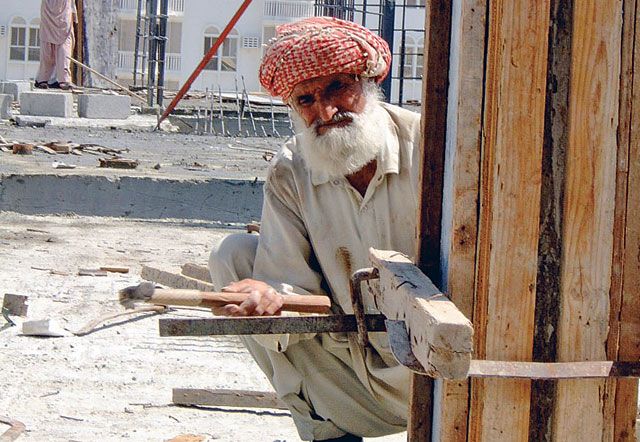Muscat: Return from a long leave recently was not very pleasant for Asokan, who has worked for one employer for over 12 years. "I have a visa from a different sponsor, who lives in a different town," the Indian expatriate explained in a dejected tone. The day he returned his employer asked him to stop working as a result of the amendments to the labour law.
Asokan, who uses only one name, is not sure where he can find work now. "My visa is [that of a] foreman for mason work but I have never worked in that profession before," said the man.
Asokan is also not eligible for gratuity or any other post-service benefits, although he was loyal to one employer for 12 years and if he had his way he would continue for a few more years. "My visa status doesn't even allow me to transfer it to my current employers as they do not have a construction business," said the father of two.
While Asokan is pondering over the future course, Noor Mohammad is wondering how to survive. The former locomotive engine driver from Bangladesh came to Oman ten years after paying 100,000 Bangladeshi takas (Dh5,332) for a visa. He then got two of his sons visas by paying around 1,000 Omani riyals (Dh9,538).
Everything was sailing smoothly as he kept repaying his debt until his elder son was caught working at a place that was not that of his sponsor. "His sponsor promised to bail him out and took 450 riyals from me for the purpose but my son was convicted for unlawful employment and after serving his jail term was deported," the disappointed Bangladeshi said.
Noor Mohammad cleans cars in the morning and does some odd jobs during the day but now lives in fear. "The labour raids come from nowhere but we have to earn so keep working and taking risks but I am scared of the worst consequence," said Noor Mohammad, who is here on a gardener's visa.
The majority of Bangladeshi nationals are here on either gardeners' or farmers' visas but carry out all sorts of jobs from cleaning to plumbing to welding.
"I have been on Azad [free] visa for over ten years but the fear of getting caught is worse this time," he says, keeping his eyes peeled while cleaning a car early in the morning.
"I can't even clean cars at night or early morning as they [labour inspectors] could come at any time," he added.
Illiyas Ghouse, a Pakistani trucker, said that some localities in Muttrah, Ruwi and Ghala were sealed off at night and raids were carried out.
"They question people with valid papers but with sponsors in different towns," he said, adding that those with valid papers but "wrong employment" were not detained but their papers were taken away.
Camps
Now, the employers, fearing punishment, are asking their casual workers to leave not only work but also the camps where they stay.
A number of construction companies have asked their casual employees to leave out of fear of being caught for unlawfully providing employment.
"When will these raids stop?" is the question everyone is asking, although the authorities have given a grace period until the end of December to regularise employment.
"General amnesty like 2001 is needed to clear a majority of irregular workers," says P.M. Jabir, the Indian Social Club's welfare secretary.












